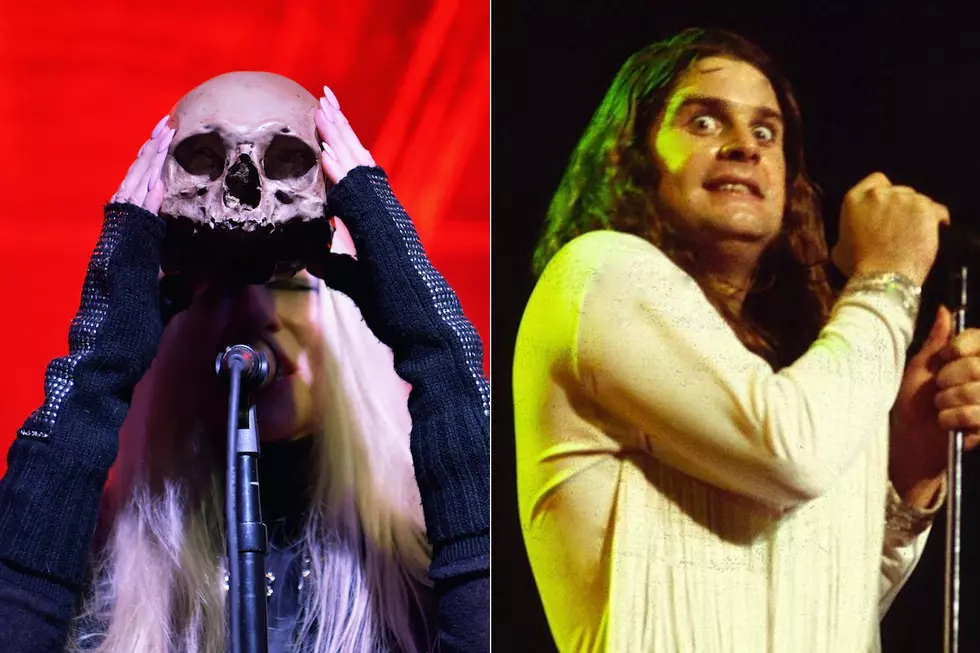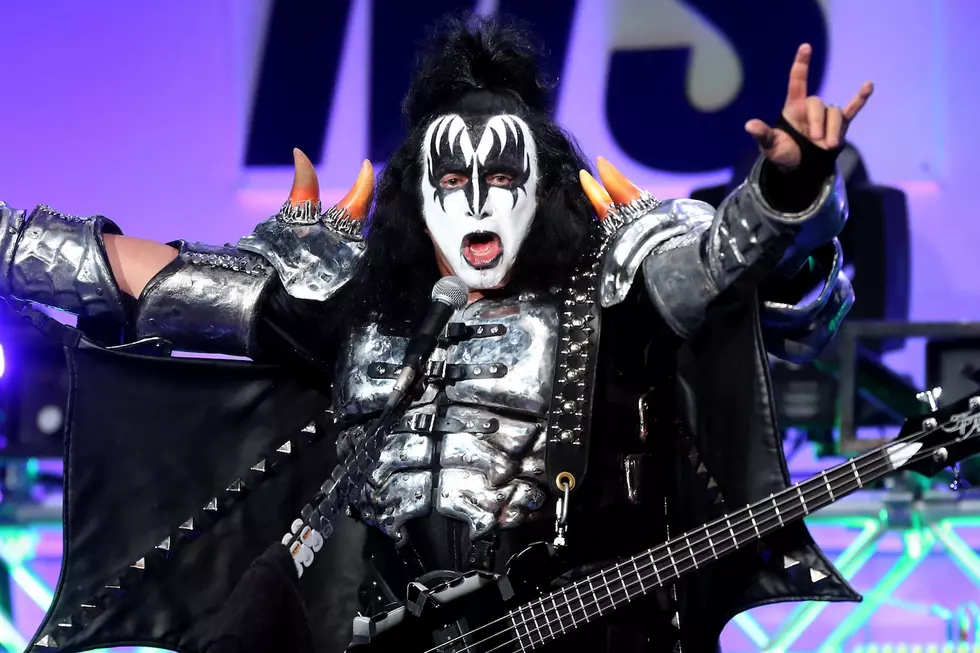
The Band Too Satanic for Record Labels When Black Sabbath Weren’t
Coven were among the earliest occult rock bands in America, fanning the flames for the eventual Satanic movement that would overtake heavy metal lyricism and imagery. According to frontwoman Jinx Dawson, the pioneering band was too Satanic for record labels around the same time Black Sabbath began their ascent.
Formed in Chicago, Illinois in 1967, Coven went on to release their controversial debut album, Witchcraft Destroys Minds & Reaps Souls, in 1969, which, perhaps coincidentally, included an opening track titled "Black Sabbath."
As part of the focus of the inaugural episode of Backstaged: The Devil in Metal, hosted by Loudwire contributor and metal author Jon Wiederhorn, Dawson spoke about her direct experience as one of the prime movers of occult and Satanism within heavy music and the response to the band's overwhelmingly dark themes.
Oh, and the frontwoman had something to say about the band's usage of the "devil horns" hand gesture, of which the origin and popularization of the sign is intensely debated to this day.
"We used to do the sign of the horns everywhere we went. People used to mix that up. The sign of the horns is an acknowledgment sign, like you’re one of the coven. You come to the door and they’re gonna have a coven meeting and you give that sign and they know you’re part of it that," relayed Dawson in a transcript provided to Loudwire.
"When I was a little kid I would stay at this big mansion, I would see people come to the doors and they’d do it back and then they’d walk in and go the ritual room, which is kind of a wine cellar thing," she further explained in reference to her time spent at a mansion inhabited by two "eccentric" great aunts who were of the left hand path ideology.
Coven's music was released in the summer of 1969, which, for the band, may have been an inopportune time regarding potential commerciality. In the following month, the infamous ritualistic-like murders of actress Sharon Tate and four others at the behest of followers of cult leader Charles Manson sparked nationwide shock and is largely attributed as the launchpad for what became the "Satanic Panic."
"You gotta remember there were [Charles] Manson murders. There was superstition. There were all sorts of really bad things going on about that. We had a very blasphemous then album. Of course now this is all just ubiquitous but back then people were scared," Dawson affirmed.
A devout follower of left hand path ideology, Dawson explained, "I recorded [Coven's debut album] as a scholarly work. In the first place, it wasn’t supposed to be a commercial work per se. But [record label] Mercury... after the Manson murders we left Chicago because they weren’t backing us and I think it’s because they thought we were too controversial. Then all of a sudden they were looking for another band to do it and lighten it up."
She went on to note that Rolling Stone reviewer Lester Bangs once described Black Sabbath as a combination of Cream and Coven, but that was more or less the height of the band's more mainstream exposure at the time.
"And that was like one of the only things is an ad in Rolling Stone and then it was like
we were blackballed. And we were. We were blackballed. We were taken out of the record stores," Dawson affirmed and later noted that Coven had printed a warning on the album to "not try any of this stuff."
In regards to her own personal experiences with the occult at the time, Dawson mentioned that she had been practicing black magic and hoodoo since she was a child.
"The mansion was incredible," she continued, offering unique examples of her upbringing, which included the Afro-Carribean practice of Obeah, as well as the African practice of Hoodoo and other forms of magic more common in Europe.
"They used to babysit me when they would leave from the mansion and the Obeahs would go out and have bonfires and they would kill the chickens and put the feet in a necklace around my neck," she recalled.
Clarifying her own personal belief system, Dawson outlined, "There actually are Satanists, I understand. I wouldn’t say I’m a Satanist. To left hand path people Satan is more like a mascot. And to scare people. But it’s not the same thing. They don’t believe and I don’t believe in a real Satan. I don’t believe in a real god. You believe in nature, you believe in yourself like Aleister Crowley [said] — 'Do what thou wilt shall be the whole of the law.'"
Listen to the podcast episode in full below and head here for more on Backstaged: The Devil in Metal.


